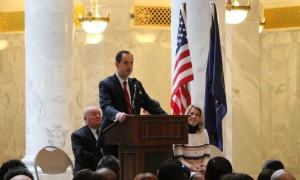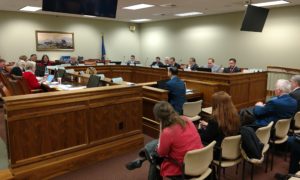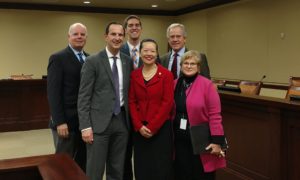It’s been about a month since my last post, so I think it’s time for a quick update. Since the session ended in March, I have been enjoying the process of meeting with delegates from my district. I love to meet with them to report on my activities and get their thoughts about what continues to be important. In our district, caucus attendance was very strong and over 60% of the county delegates elected were not delegates last time. I like the fact that new people want to be involved.
In meeting with the delegates, a few issues have come up that I would like to provide more detail on.
Pay As You Go
One of the strengths of the legislative process is the constitutional requirement to balance the budget. The net impact is that every bill that is going to increase cost to the state must be accompanied by dedicated funding. One of the challenges to legislators is to secure funding for each bill you propose. Sometimes that is done by identifying an existing source of money, but many bills have to be funded from the “surplus funds” that are available. In either case, there is stiff competition for funds and House members are very serious about not passing bills that are not funded. In legislative language, we refer a lot of bills to the Rules Committee “due to fiscal impact” and if funding is not secured, the bills do not come back for further consideration.
Federal Money
It is extremely frustrating that as much as 30% of our state spending is done with federal funds. While some would argue that using federal funds is simply the way the state “pulls back” tax money that we have already paid, the problem is that those funds almost always come with strings attached. The federal government uses the threat of blocking funds as a way to coerce the state into adopting policies that we really don’t like.
The largest amounts of federal funding are spent on health care, education, and transportation, but there are federal fund components in almost every department. While I can appreciate the desire to leverage federal funds to pay for existing programs, there has to be a point where the strings that are attached are simply not worth it. Education is an excellent case in point. In an ideal world, we would replace all federal education funds with local funds and not be bound by any federal requirements. We have to start working our way to independence from federal overreach.
Is this Bill for Real?
Every year, we get a long list of bills that seem like they would make no difference at all, however, these bills take time in committee, time on the floor, and use taxpayer resources to develop and implement. In recent memory, we have had bills to designate an official state dog (this one failed) and an official state work of art (passed – Spiral Jetty). Other bills commemorate specific events, such as Bladder Awareness Month (passed – November). Legislators are, and should be, free to propose any bill that they wish, and these bills are obviously important to someone, or they wouldn’t have been proposed.
The real question is – how much time and energy should we devote to studying and debating these issues? Recognizing the right of my colleagues to propose this legislation, I think the best approach is to spend as little time as possible dealing with them – a quick up or down vote is the best path forward.
Hemp Help for Kids with Seizures
I have had a lot of questions about my stance on medical marijuana. My position is simple – compassion based on science. Most people don’t realize that I actually sponsored the only medical marijuana bill to pass this year. The following link will take you to HB58, 1st Sub: http://le.utah.gov/~2016/bills/hbillint/HB0058S01.pdf. You can see that I proposed this substitute version that strengthens the existing program to make CBD Oil (a hemp extract) available to children with intractable seizures. This is the version of the bill that passed with minor modifications. I am pleased to have had a primary role in the development and passing of this bill that allows for compassion, but backs it up with science.



